Production diary content
Proud to Be – Production Diary
Pre-production
In pre production I took a producing role by helping to find our contributor. I did this by emailing the homeless center we’d discussed as a group, 1625ip who were happy to be a part of our documentary and ask Tyler if he’d like to share his story. As my main focus was camera I also worked a lot with the rest of the camera team to work out visual decisions and decide what we actually wanted to shoot. The whole group discussed ideas and created a Production Schedule to organise what shots we wanted to get when. We also wrote up a Risk Assessment considering the health and safety issues we could face on shoot and how we could overcome them. Discussing all our ideas and decisions as a team and making sure we all agreed with our plans, and then putting things together into a production schedule and risk assessment made me feel like we were well prepared for our shoot.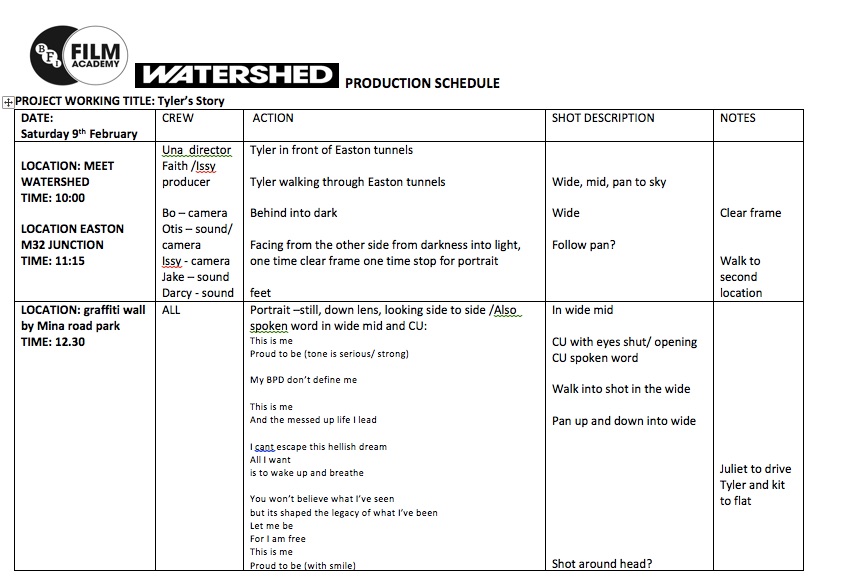
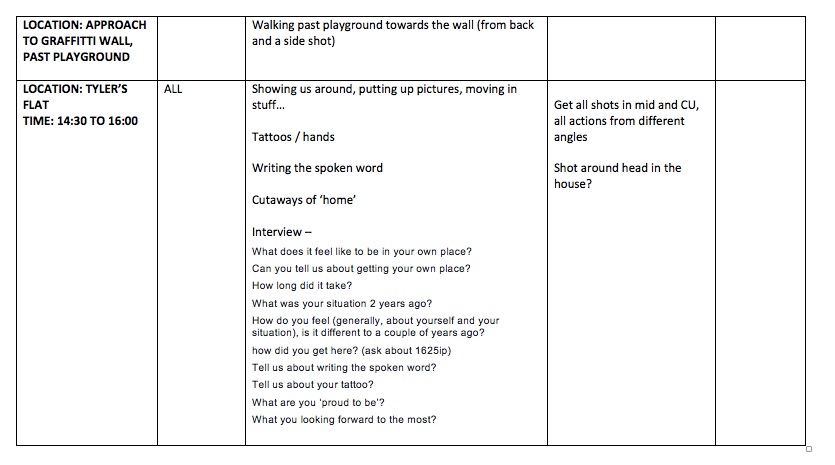


Shooting
I took a variety of roles on set including a producer/director role at some points but primarily did camera work. On our first filming day I directed for the morning as we got some cutaways of Tyler and did camera work for both of the interviews we shot in the afternoon. I felt our team worked really well with carrying out our roles and listening to instructions, as well as all speaking up if we felt we needed to change or add something. I think everyone acted professionally on set and were very respectful and friendly to one another and especially our contributors
On the second day I just worked the cameras. We got some more cutaway shots as well as a tour and interview in Tyler’s flat. I worked closely with Bo on camera B in the morning, insuring we were getting some interesting cutaways whilst the rest of the team were working on our planed shots. Most of our challenges on set occurred on this morning due to the public and weather. When it became rainy we had to make the decision to pack up the equipment to keep it from being damaged and move on to our next shot to make the best use of our time and prioritise the shooting of the whole film over one shot. We also had problems with the public walking into shot on both days, we tried to overcome this by having some team members on the side politely asking if they could walk behind the cameras or wait until we’d finished a shot. In the afternoon I shot the interview on camera A, Juliet gave me advice I took on board and will remember about framing interviews, to have the eyes a third of the way up and to leave speaking space in shot.
I feel I worked well as part of the team, I tried to be always doing something, even when I wasn’t physically holding the camera, by offering my opinions where needed and helping set up equipment and manage the public. My knowledge of how a whole film crew works together increased massively as I had only worked independently on films up until now, I learnt that although you must be conscious of what everyone else is doing around you and communicate well about whats being shot, your main focus needs to be doing your task as well as possible. 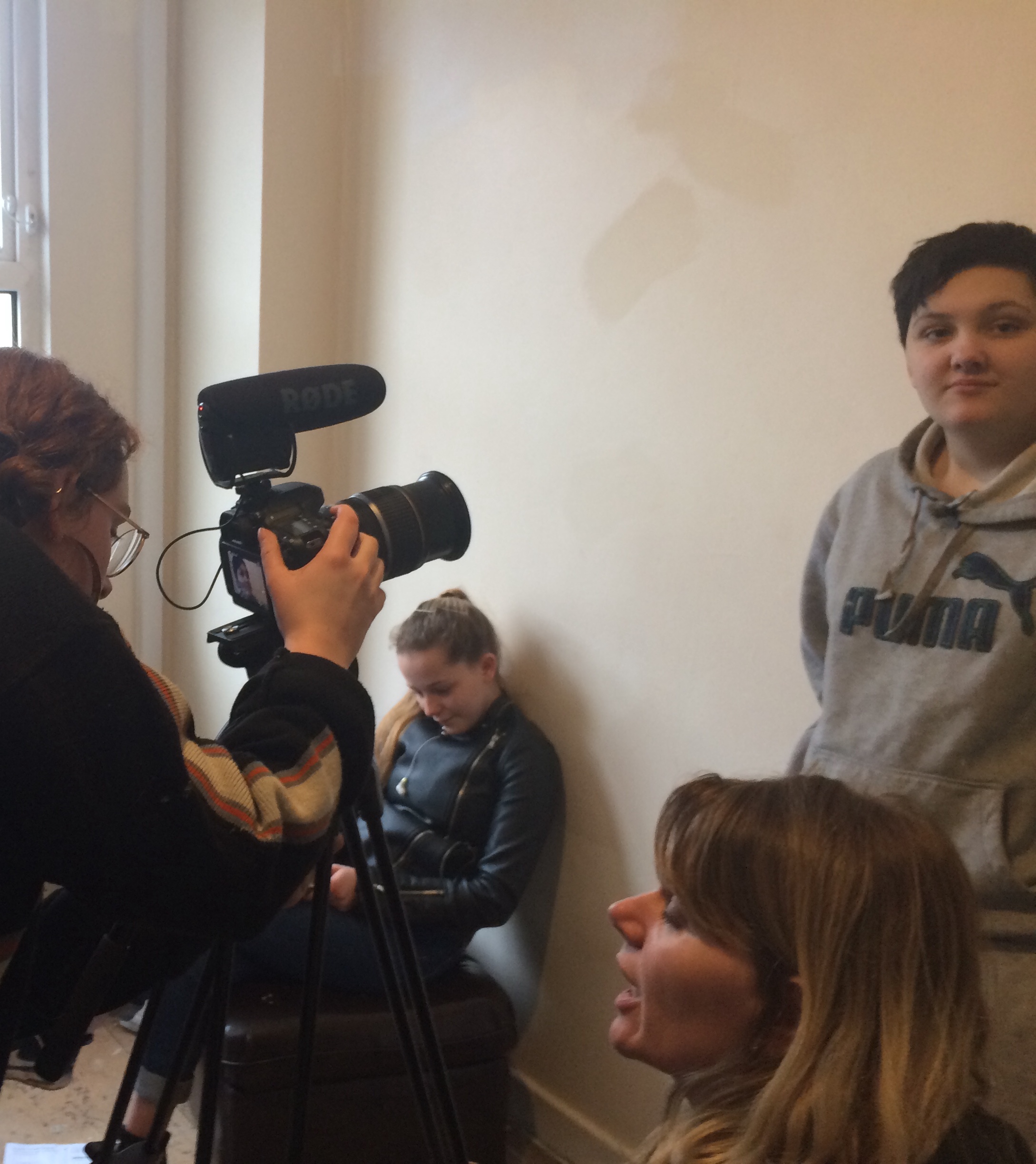
Overall I feel the shoot went well on both days, although we felt limited due to the time on the day, after looking back at footage we have everything we need to put together our film. I think the one thing we could improve on is how quickly we set up, frame and get shooting which I think will definitely improve in the future as we all get more comfortable with the equipment and our roles, we also now know to keep the camera rolling as much as possible even whilst we’re working out framing, as it may be usable cutaway footage.

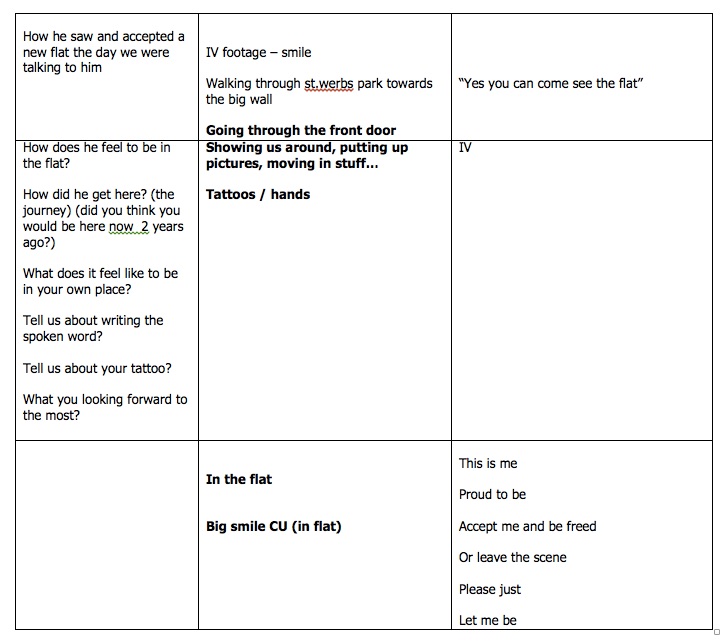
Here is our documentary, released through Rife youth platform:
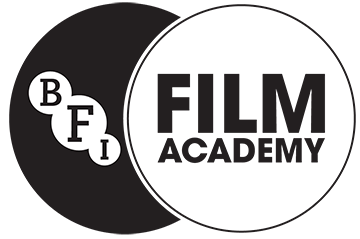
Hi Isobel, this is a fantastic account of your documentary production process. You were part of a great team and its great to hear how well you feel you all worked together and also how your filmmaking has developed through shoot. This is excellent evidence towards your practical learning for sections 1 to 4. great work! Well done.
Hey Issy,
You have evidenced all criteria to a high standard and completed your portfolio to achieve all learning outcomes. You have shown that you can develop your own working practice for the film industry. Well done! You have ACHIEVED your qualification ‘Preparing to Work in the Film Industry’. 🙂
Ses